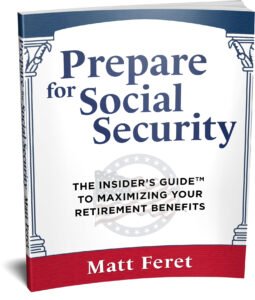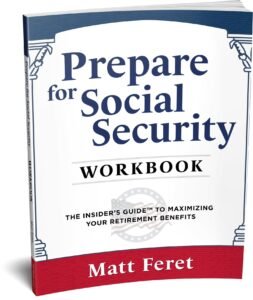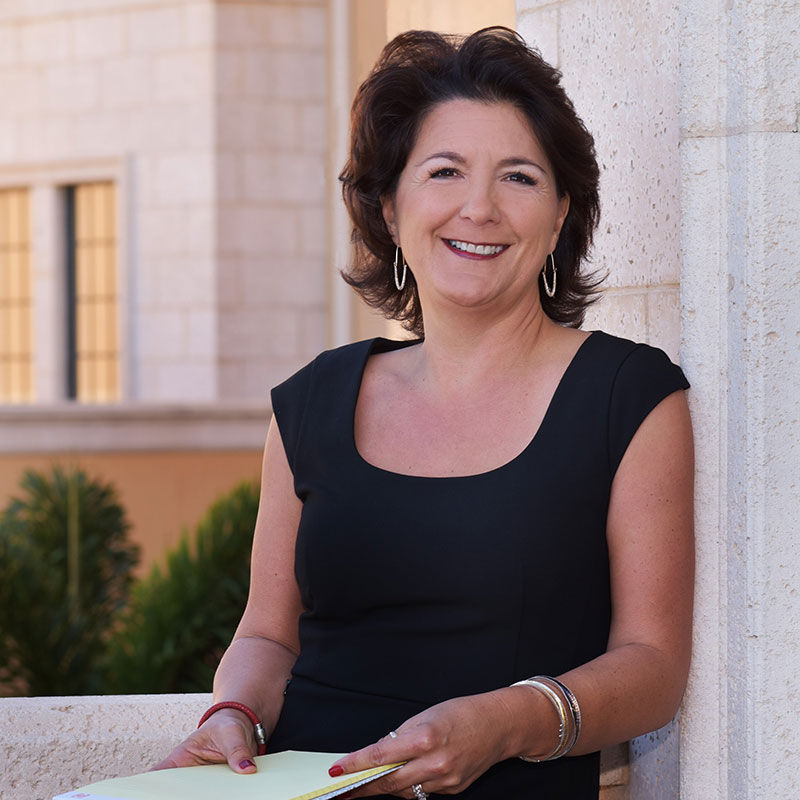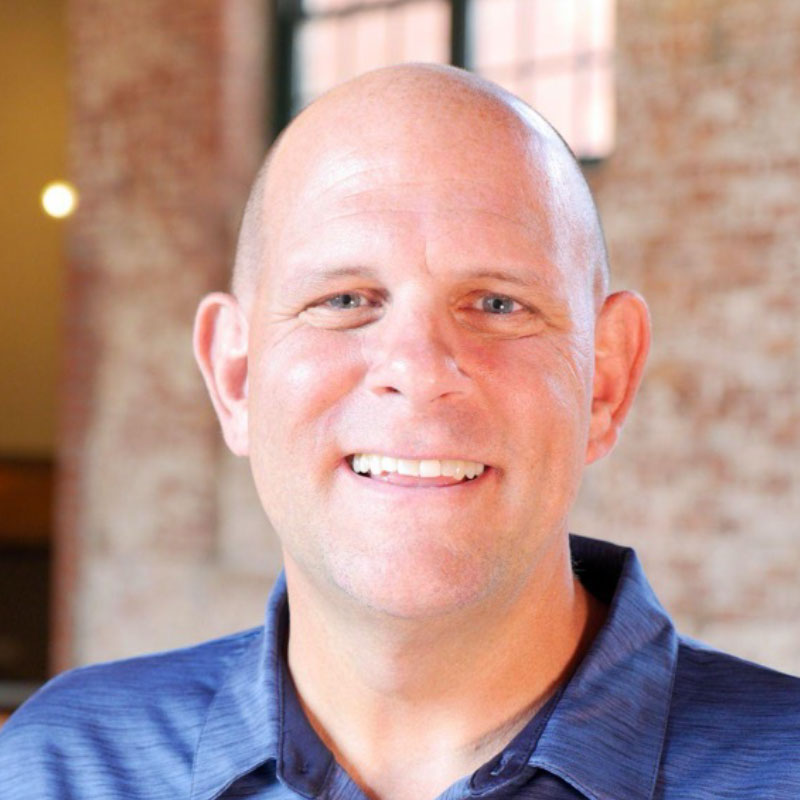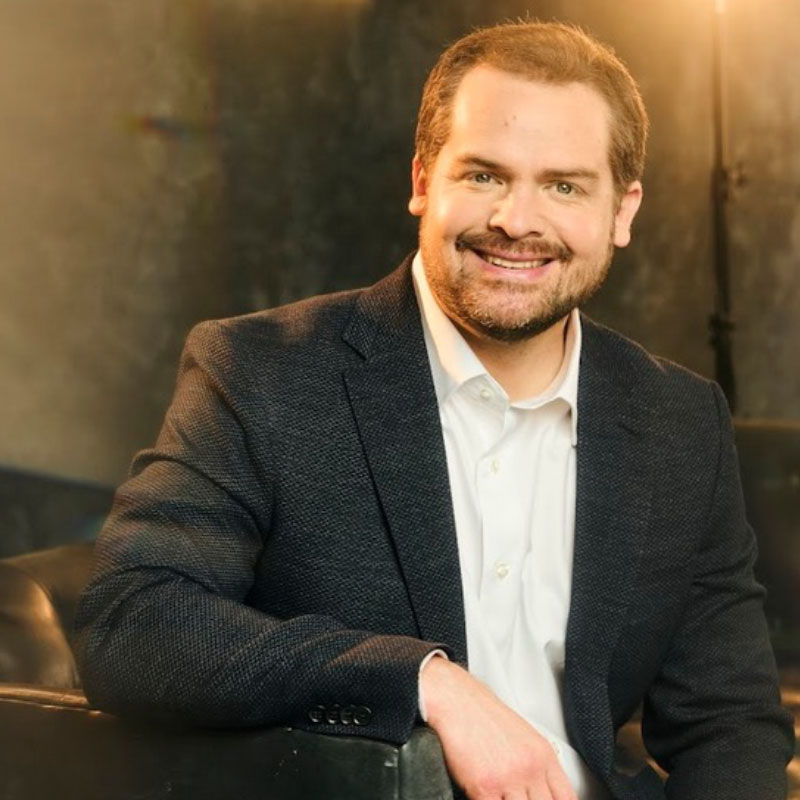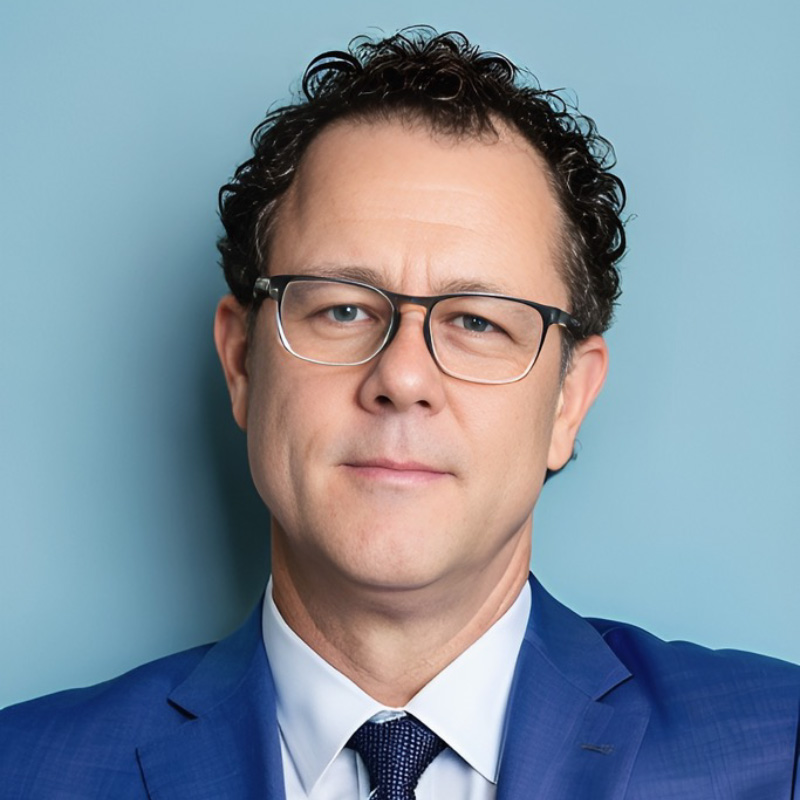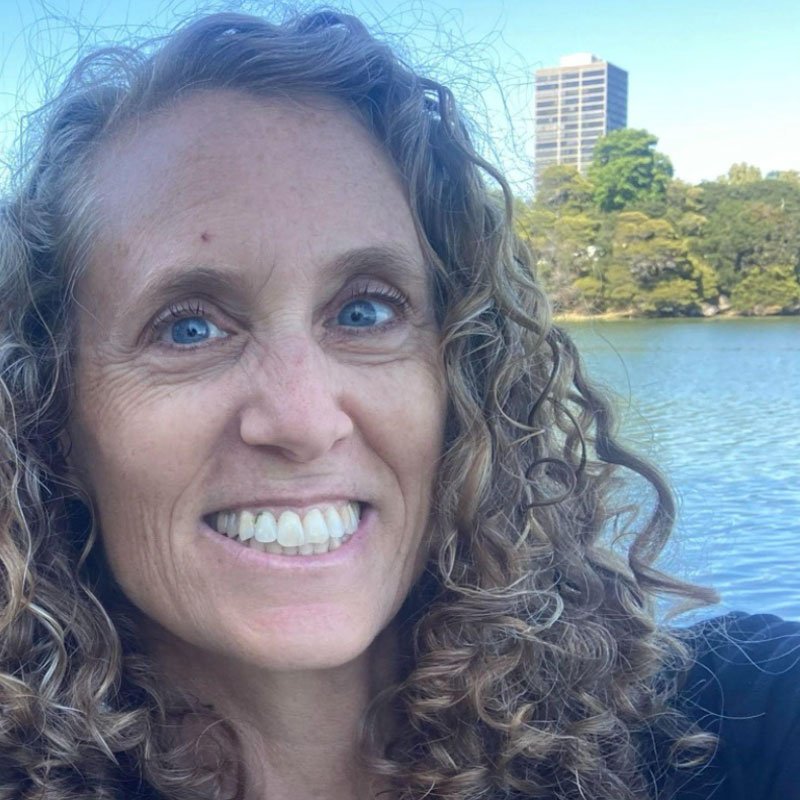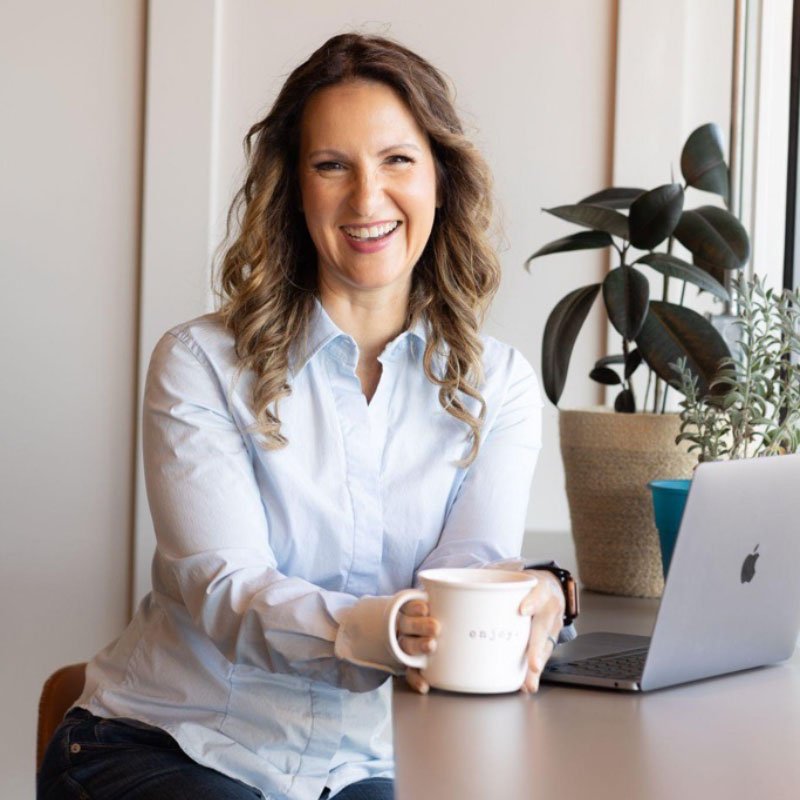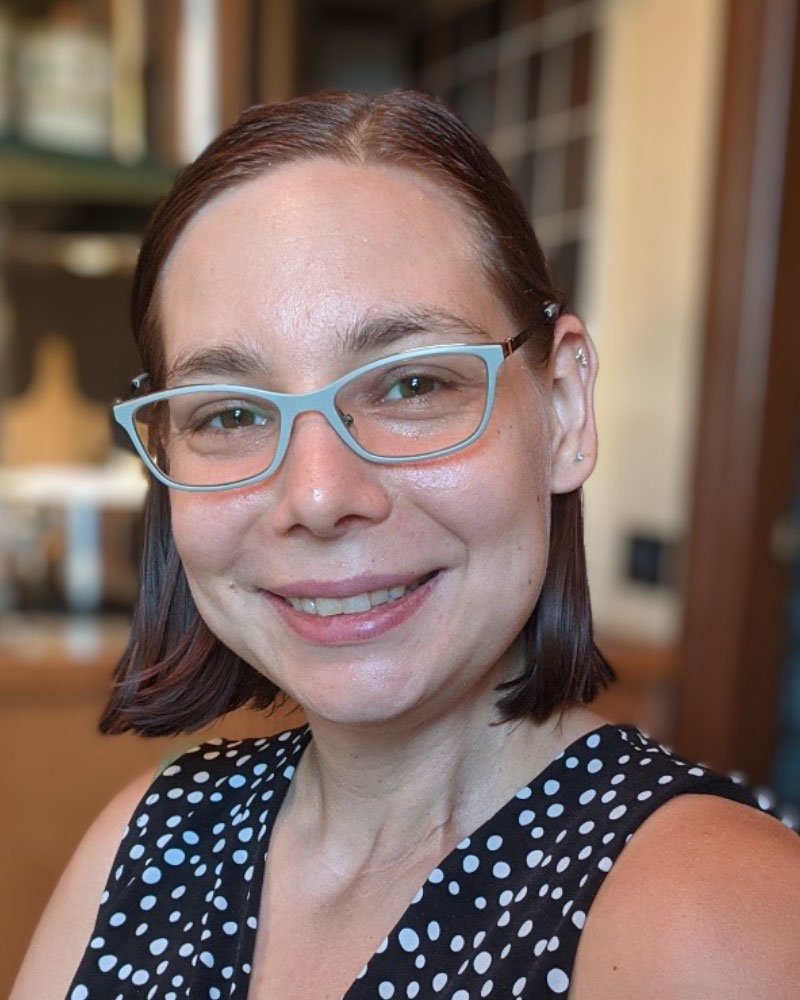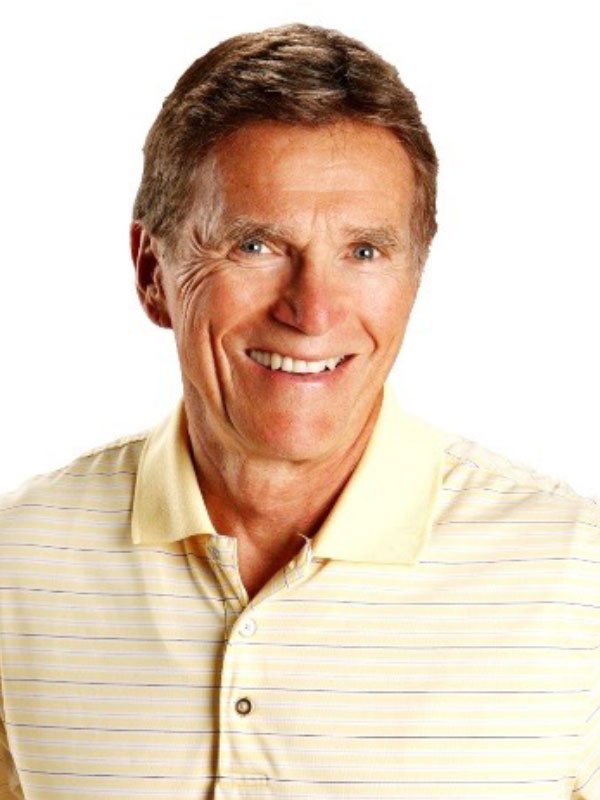#076
Share This:
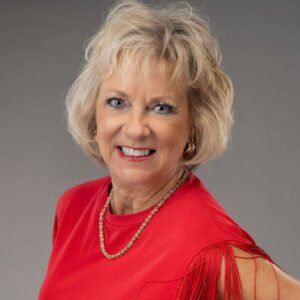
In this episode of The Matt Feret Show I interview multi-talented author, blogger, and home-rehabber Marita Tedder to learn about the ‘Best Life Project,’ a movement that aims to help women over 60+ find their niche, develop meaningful relationships, and ultimately live their best life. We discuss common issues facing women over 60 such as grief, relationships, self-discovery, and retirement. Marita also offers advice and analysis based on her expertise in relationships and personality types.
If you enjoyed this episode of The Matt Feret Show, you may also enjoy:
Finding Purpose and Fulfillment in Retirement with Retirement Stepping Stones Author Tony Hixon
Improving Intimate Relationships in Midlife and Retirement with Courtney Boyer, M. Ed., M.S.
Listen to the episode on Apple Podcasts, Spotify, Deezer, Podcast Addict, Stitcher, Google Podcasts, Amazon Music, Alexa Flash Briefing, iHeart, Acast or on your favorite podcast platform. You can watch the interview on YouTube here.
Brought to you by Prepare for Medicare – The Insider’s Guide book series. Sign up for the Prepare for Medicare Newsletter, an exclusive subscription-only newsletter that delivers the inside scoop to help you stay up-to-date with your Medicare insurance coverage, highlight Medicare news you can use, and reminders for important dates throughout the year. When you sign up, you’ll immediately gain access to seven FREE Medicare checklists.
Quotes:
“By the time you get to be our age, it shouldn't be all that easy to figure out what your personality type is because you've grown and matured, hopefully now those who know you really well, who know you when you're at your best and know you when you're at your worst, not just the kind of pretty picture you give the world, they will know, but ideally grown and matured. And that's a really important element of our being at this point in life and living your best life is really living in your strengths.”
“Well, one of the biggest things I think is for women especially is in younger years, the friendships came from children. You took your kid to softball or ballet or whatever it is you did. And the other mothers who were there were an obvious connection point for you in the office, you had the people you worked with, and maybe you went out to happy hour with them or whatever you did, but you connected. You had a logical connection. But then when that job is gone, the kids are gone. It's like, okay, what do I do now? How do I make friends?”
“We have quite a few pieces that generally address the grief topic, but more from a senior woman perspective as it is really different because as I said, we've been caregivers, we've taken care of people, our parents, by the time we get to this point.”
#076
Selected Link from the Episode:
Host’s Links:
All Things Medicare: prepareformedicare.com
Decoding Social Security: prepareforsocialsecurity.com
My Written Works on Amazon: www.amazon.com/stores/Matt-Feret/author/B09FM3L4WW
The Matt Feret Show YouTube: www.youtube.com/@themattferetshow
Network with me on LinkedIn: http://www.linkedin.com/in/mattferet
Follow me on X: twitter.com/feret_matt
See behind the scenes on Instagram: www.instagram.com/matt_feret/
Join our community on Facebook: www.facebook.com/themattferetshow/
Guest’s Links:
Blog: https://livingyourbestlife60plus.com/main/
Facebook: https://www.facebook.com/energyrabbit/
LinkedIn: https://www.linkedin.com/in/marita-tedder-4a372712/
Amazon Bookstore Front: https://www.amazon.com/stores/Marita-Littauer/author/B001H6KLXC?ref_=dbs_p_pbk_r00_abau_000000&isDramIntegrated=true&shoppingPortalEnabled=true
Personality type website: https://thepersonalities.com/
Full Show Transcript:
Announcer:
This episode of The Matt Feret Show is brought to you by the Brickhouse Agency. Brickhouse is a boutique independent health insurance agency that focuses on finding the right Medicare coverage for folks across the country. Matt's wife, Niki, is the heart behind Brickhouse. She's great at making confusing things clear and is passionate about helping people find a Medicare insurance policy that suits their individual needs. To schedule a free one-on-one appointment with Niki or a member of her team, head on over to brickhouseagency.com or simply call (844-844-6565), and someone will help you schedule a phone call or a Zoom meeting. The consultation is free because the insurance companies pay Brickhouse, not you. There's never any pressure or obligation to enroll. Your clearer, simpler Medicare journey is just a call or click away. brickhouse agency.com. Not affiliated with or endorsed by the government or federal Medicare program. Contacting Brickhouse Agency LLC will direct you to a licensed insurance agent.
Introduction to Marita Tedder with Matt Feret [1:09]
Matt Feret:
Hello everyone. This is Matt Feret, author of Prepare for Medicare and Prepare for Social Security Insider's, guidebooks, and online course training series. Welcome to another episode of The Matt Feret Show, where I interview insiders and experts to help light a path to successful living in midlife retirement and beyond. Marita, welcome to the show.
Marita Tedder:
Thank you. It's a treat to be with you.
Matt Feret:
Glad you're here. So, I kind of start off every show like this, tell everybody what you do, how long you've been doing it, and how you help people.
Marita Tedder:
Well, I've been through a circuitous career path, so when you ask what do you do, it's not really quite as easy as what do you do. I started out my early adult life as a motivational speaker and author, and I've written 20 books, and I did that for most of my adult life, 30 plus years, and unfortunately about 15 years ago now. Well, no, it wasn't quite that long ago. But anyway, a while ago, my now ex-husband basically gave me an ultimatum and he was tired of my traveling and he felt that I was married to my business and to my work, and in a now failed effort to save my marriage, I walked away from everything I had ever done because you see, the topic that I spoke and wrote on primarily was relationships. So what good am I as a relationship expert if I can't give my primary relationship everything I can to make it work? So, I walked away from that world and the staff that I had and everything that I had done, and it's a long story. You probably don't need to hear that part, but I accepted a position as executive director of a nonprofit organization that advocated on behalf of energy and the energy industry. And yeah, I know it's not a logical topic shift.
Matt Feret:
No, that's a very big change.
Marita Tedder:
But I was able to take the position and kind of parlay it into what worked for me because I'm a speaker and an author, and so quickly I was philosophically aligned with the mission. So that part was easy, but I knew nothing about producing oil, about coal, about natural gas, about electricity generation, and I could now tell you more about any of that than you want to know, but that's not what we're here for today. And so, I wrote columns that were published all over the country and websites, different papers in the oil patch particularly, I was popular in the patch. I gave speeches to oil and gas associations around the country, and they were very news based. So, I had a weekly column. I was constantly watching the news to see how I can tie energy into the current news cycle. And I did that for a decade.
And in 2016, I had an opportunity to go to Palm Springs, California where my mother lived at the time and where she had a house, and I handled her extra house there as her vacation rental. And so, every season I would go and freshen it up, and I went back there and we put in new flooring, and I did quite a bit in one week. And I came home from that, and I said to my husband, you know what I'd really like to do? I'd really like to flip houses. Yeah, I mean, it was a little longer conversation. I'm giving you the way condensed version. By the way, I did get remarried in 2014. I met my new husband in 2013 in Santa Fe, New Mexico at the New Mexico Oil and Gas Association's annual meeting, and he was in the oil and gas business at the time as well.
And so, we married in 2014 and I moved to Lubbock, Texas from New Mexico to Lubbock, Texas. So that is where I am now. And so, I said to him, I'd like to flip houses. Now, this is not quite as strange as it sounds because my college education was in interior design. I just never did anything with it. So, I've kind of come full circle. And long story short is he said, okay, you can flip houses again. It wasn't quite that easy a conversation. But I started doing that in 2016, and then my mother, who was at the time 90, moved in with me in 2018 because she needed more care. And so, I moved her from California to Lubbock and I quit working. My mom needed me, and she needed me to be there for her during the day. And then she got better. And someone who I knew through the real estate business reached out to me or me, gave my name to a client of hers, and they called me, and again, I'm giving you the very, very short version, they called me and said, so-and-so gave me your name and she thought you might be willing to remodel our bathroom.
And I said, well, I've never done that for someone else. I do it for flip houses, but I'll come look at it. And that started what I'm doing now, which is I'm a remodeling contractor. And so that's what I actually do to earn a living.
Matt Feret:
Wow.
Marita Tedder:
It's a very circuitous route. My husband's a CPA and his path is very straight mine, not so much.
Matt Feret:
Which brought you to today and you and I talking what's your newest and latest project? So, you've got a lot of different varied experience. Not only did life take some interesting turns, but you also found time to write 20 books. That's amazing. I've got two, and I can't imagine writing 20.
Marita Tedder:
Well, at the moment, I can tell you I can't even imagine writing another one. I haven't written a new book since 2014 probably.
Matt Feret:
Oh, well, I mean still that's still relatively recent.
Marita Tedder:
But I do have a new project.
Matt Feret:
Yeah. Tell me about the new project. I think this new project really kind of wraps in a lot of what you've been talking about, which is, well, a career, a different career, marriage, divorce, remarriage, and in here you are today with a life's worth of experience and wanting to share it.
Marita Tedder on her blog, ‘Best Life Project’ [07:42]
Marita Tedder:
Yeah, there's a lot of us who get to this point in life, and I'm 65, and so there's a lot of us who make it to this point in life, and we have that varied kind of background. We've got the divorce, we've got the remarriage, we've got a lot of things going on in there. And what my new project is, is I call it the ‘Best Life Project’, and it's a website blog. It's really basically a blog. We might end up doing some podcasts, but that's not there yet. We need to have a little bigger audience before we put forth this kind of effort. But it's currently a blog. And I got the vision for it really, literally just about a year ago, possibly even a year ago today. I didn't write it down. I didn't know it was going to be the epiphany that it turned into being, but I had a dream one night at night in the middle of the night, that kind of dream, not a I have a dream kind of dream.
And in my dream was my mother and my mother and I had worked together in Christian speaking and writing for many, many, many years. And as I said, she lived with me for the last two years of her life, and I had this dream. And in the dream, my mother was not the old lady I took care of. My mother was not the famous speaker author on the stage in front of 30,000 people that she was at her peak, but she was somewhere, I don't know, maybe in her forties. And none of that really matters because what matters is that when I woke up, I had this really strong impression that what I had in this dream was my mother when she was living her best life. And the next thought that came into my brain while I was still in bed is that right now, this Marita, this 65-year-old Marita, this remodeling contractor, Marita, not the famous speaker, author, standing on the stage getting the accolades, but this Marita was my best life.
And so with that came a whole new direction for me, and I didn't do anything with it at first. It was just an idea, and I did nothing with it. Then my sister and I went to Hawaii in November, and we talked and I told her about this dream. I hadn't told anyone, not even my husband about it yet. And so my sister and I went to Hawaii and I told her about this dream that I had, and she got really excited about it. Oh, I missed a part. I'm sorry. I got to tell you this one other part. So prior to going to Hawaii with my sister, just a week or so before I got a call from someone who had been part of my former Christian speaker, writer, author life, and this person called me and she said, I have just won the Ms. Senior America contest, and I am now Ms. Senior America. She said, I feel like I have been given this platform and I need to do something with it. She said, I think I need to write a book. And I told her, by the time you get the book written, by the time you get it published and out, you're no longer going to be Ms. Senior America.
Matt Feret:
How long do you hold that title for, by the way?
Marita Tedder:
One year.
Matt Feret:
A year is not- It took me a lot longer than a year for each book.
Marita Tedder:
Even if you had it all written, even if you could somehow miraculously write it overnight, the whole publishing process is very long. So, I said to her, you need to do something else. And so, I shared with her what I call my best life dream, and I said to her, you need to do something like this. Do a blog. You can make that. That's quick. You can make it happen now. So, then I go to Hawaii with my sister. I tell her this, my sister gets excited about it, and she immediately calls her son who's a tech guy and says, would you buy me this domain name? Would you buy me this domain name? So, we bought all these domain names not knowing what we were going to do and what was going to happen. And then in February, we actually launched the ‘Best Life Project’.
And so, it's out there and we post a couple different posts a week, and the target audience is women over 65 who live at the intersection of a NN diagram, which includes health, time and resources. And our definition of living your best life is that, and we want to encourage women to take advantage of that unique place where they are while they have that opportunity because we don't know how long we're going to have health. And of course, that's a key part of that. And what our best life is different for different people. For some people it may mean traveling. For some people it may mean going to every grandchild's football game or whatever. So, we have different contributors that write for the ‘Best Life Project’, and we feature different inspirational educational and equipping pieces to help women over 65 live their best life.
Matt Feret:
That sounds pretty awesome.
Marita Tedder:
So that's my new project. I'm still working on houses to earn a living.
Matt Feret:
Well, so what kind of response have you found? Have you found men saying, well, what about me? Or have you really gone like, my gosh, thanks. There isn't a resource out there or there are very few for women of that age.
Marita Tedder:
There are very few. I of course did my research before launched this, and there are a couple things that are a little bit similar, I don't feel that's exactly what we're doing.
Matt Feret:
So, what are you finding in terms of what people are approaching you for at this point or they're interested in reading? I've had other guests on the show before, and you've got the basics of your finances, your Medicare, your social security-
Marita Tedder:
And I'd love for you to write pieces for me on that because seriously, I have very little on there on those specific topics.
Matt Feret:
But they're out there and those are kind of the foundations for all the 67 million plus people over age 65 right now. But there is a real lack of stuff beyond that. And that's what a lot of this podcast is about, but what else? You're living your best life. What does that mean to you? How do you go about finding it? What are the common themes or what are some common themes or questions that you either a write about or that you're approached by other people going like, hey, I need to know more about traveling to my kids, like you said, high school football games. Logistically how that fits into my life, what kind of things you running into that aren't being covered that you are?
Grief and Caregiving in Women 60+ [14:40]
Marita Tedder:
Well, one of the things that we have gotten the most response on and realize this is still really in its infancy. And so obviously one of our biggest issues is eyeballs, getting more people to be involved. That's one of our biggest concerns. Of course, what happens with that? But one of the things that we've gotten a lot of response on a general topic is grief, of course, because for most of us at this point, like myself, I cared for my aging mother. She died in my house during COVID. She did not die of COVID. And so, then we had to plan a funeral when you weren't allowed to plan funerals. And so, we've got several people that have written on that particular topic. I have a friend of mine who is a psychotherapist, and when she wrote a piece on when grief is relief, and her mother had been sick for many, many, many years, had no idea who she was by the time she died. And that really complicates the whole grief process is when you're really pleased that the person has died because it was time, and they needed to die.
Matt Feret:
But guilty and guilty for feeling relief, not feeling relief because your loved one's gone, but they were gone, but they weren't the same person, you still miss them because they were there. Yeah, the whole thing. Yeah.
Marita Tedder:
So, we have several pieces on that. Another person, another friend of mine from my Christian speaker writer world wrote a piece on taking care of yourself as a caregiver as she had cared for her spinster aunt. And so, the aunt had no family, and so Candy took care of her, and then Candy had to clean out her house and going through all the emotions of all of that. So, we have quite a few pieces that generally address the grief topic, but more from a senior woman perspective as it is really different because as I said, we've been caregivers, we've taken care of people, our parents, by the time we get to this point, I mean personally for me, most of my girlfriends do not have either parent still alive. I have a couple that still have a mom or a dad, but most of us by this point no longer have a parent alive.
And so that's an issue that we deal with, but we also address silly little things. I mentioned to you before we officially began the interview that I'm having a dinner party Friday night, and I love to cook, I love to entertain, and people are kind of baffled by that. And so, I have in the blog, I write some pieces on how to do a meal plan and here's the St. Patrick's Day dinner plan, and in the morning do this and midday do this. And it's all outlined there because relationships are something that becomes very important to us at this time in life. And again, we don't usually have our parents with us in many cases. Our kids live elsewhere. And so those relationships become very important.
Navigating Relationships and Loneliness in Women 60+ [18:00]
Matt Feret:
Yeah, I was hoping you were going to go there where I wanted to go, which is relationships. And I noticed in your bio you have a lot of experience and probably your public speaking and your motivational speaking and you're presenting in much of your career around those relationships. How has the dynamic changed over the last number of years since you started doing this and where you find yourself today in terms of relationships? And I ask that with this context, pick up a newspaper if you still read a newspaper or pick up your iPad where the newspaper is now, and you're going to see once a week a story about loneliness. You're going to see a story about disconnection. I was having a conversation with a friend just recently who lived in Pittsburgh, and I don't know why we started talking about this.
Our neighbors, the neighborhoods aren't the same anymore. Now, I know my next-door neighbor, I know the person across the street and that's it. And I've lived here for eight years. It's not for want or lack of trying, it's just not the same as it was even when I was growing up, and I'm sure not the same when you were growing up. So, the relationship piece is missing from a community standpoint, and I think there's a lot of stuff out there that talks about that specific to your audience and the people in your age group and women. Do you find that to be true, and do you find that really, we're talking small groups or groups, people are people searching this out, how our relationship impacted today?
Marita Tedder:
Well, one of the biggest things I think is for women especially is in younger years, the friendships came from children. You took your kid to softball or ballet or whatever it is you did. And the other mothers who were there were an obvious connection point for you in the office, you had the people you worked with, and maybe you went out to happy hour with them or whatever you did, but you connected. You had a logical connection. But then when that job is gone, the kids are gone. It's like, okay, what do I do now? How do I make friends? For me, that was a big issue because I moved from where I had been for the past 20 years. I moved from there to a brand-new place when I got remarried. And I could tell you I've been married in the beginning when I first moved here, I was in love.
I was starry eyed. I didn't think about what it was going to be like. And then after I'd been here six months, I literally cried to my husband. I mean like real tears, cried to my husband and said, I don't even know enough people to have a dinner party. And then we got married in December, so next December's coming around, and I still really knew very few people. I did meet a couple people, and it was December, and I realized if I was back home in New Mexico where I had lived for 20 years, I would be preparing to host my church women's Christmas party at this very week that I was having this thought. And I thought I know enough about churches to know that I could call my church that I attend now and say, hey, I'd like to host a women's Christmas party.
Well, they don't really know me. They're going to go through all kinds of stuff. I knew they were never going to okay that, and they still don't have a women's Christmas party, by the way. But I knew that they were not going to okay that. And so, here's what I literally did, and I have a blog post on this, and it's called ‘Building a Merry Little Band’. And I started by going to the Next-Door app and putting a post in the Next-Door app asking would anybody like to come to my house for a women's Christmas party? And that's what I did. Now, it was the Next-Door app, so it's a little bit controlled to the neighborhood, and 40 women came to my house for a Christmas party in a matter of a couple of weeks from when I posted that post. Women said, I'll come help you organize it. And we had a little committee meeting, and we planned what we were going to do, and everybody came, and they brought a gift to exchange, and they brought a casserole, or it was a brunch, it was a champagne brunch. So, they brought champagne, they brought juice, they brought breakfast casserole, they brought muffins, whatever. And that is literally how I began developing relationships in this new life.
Matt Feret:
But on the opposite end of that, 40 people, 40 complete strangers, what message did you take from that?
Marita Tedder:
There's a need that 40 total strangers were willing to come to a total stranger's house for a party. So obviously there is a need for that. So that's why I wrote a blog post on it to really encourage people to step out of their comfort zone. And honestly, I have not heard from anyone that has done it as a result of that blog post, but the comments on it were, thank you. This has given me ideas and I'm going to try something like this.
I realized after I met a bunch of new friends that I wasn't having a dinner party because even though that was kind of my thing, because I couldn't invite everybody, I couldn't fit everyone around the table, and I didn't want anyone to feel left out. And so, when I thought that through, I realized, well, if I put everybody's name on a little strip of paper, first off, I asked them, do you want to be a part of this crazy idea that I have? And everybody said yes. And so, then I put their names on a little strip of paper, literally put them in a little jar and pulled out six couples, my husband and myself, plus six, not six couples, excuse me, three couples, six people, which is eight around the table. And then once a month I had a dinner party. So that's what I'm doing Friday night. I call it Casita Marita because when I was a child, my father had a restaurant that was named after me, and it was named Casita Marita. And I still have this little bit inside me that wishes I owned a restaurant, so this meets that need.
Matt Feret:
Well, I think that's a really great practical way for not only women, but anybody to do that, whether or not they move someplace or they're just going, hey, I need a new friend group.
Marita Tedder:
Because I need new connections. These ladies that came, most of them had lived here for a long time. In fact, one of my friends who's on the spreadsheet, she's lived here forever, she's taught at Texas Tech University, which is the main university here in Lubbock. She's taught there her whole life. She grew up here, but her husband died about three years ago. So, she's a relatively new widow. And when she kind of hooked up with our group, I asked her, why do you need us? And she said, well, because my life has changed and I'm kind of in a new place in life, and all my old friends are part of that other life, and I needed something new. So, there's a lot of need out there.
Matt Feret:
Do you get that need through your website or not just in your hometown there, but do you get that need a lot through the website in terms of the split between married couples and then single women aged 60, let's say 60 plus? Is there a difference there?
Marita Tedder:
Yes, there most definitely is a difference there, and you have to be willing to kind of be alone. In my personal experience, I probably a third of my friends are single, whether they're divorced or widowed. And so, when I have my little dinner parties, I'll invite two singles. If that's how the lottery works out, I'll invite two single people to come. And as a single person, you have to be willing. Last year, in my case, three couples of us went to Napa Valley, and one of my friends who's single went, so there were seven of us, and she had to be okay with being kind of that odd man out, and she was, so for a single person advice wise is be willing, don't feel like, oh, I can't participate because I don't have a spouse or a partner or whatever. But as long as we're willing to welcome her into, which I believe all the good friends would do.
Personality Types and Relationship for Women 60+ [27:11]
Matt Feret:
Do you have thoughts around personality types that are, I guess more or less seek something like this out a sense of community, a sense of connection to kind of a women's only group? I know you spent a lot of time around people's and personalities and those relationships based upon personality. Anything you would say to people with different types of personalities thinking about, gosh, I'd love to do this. Gosh, I'd love to be part of a group. Gosh, maybe this website and this effort can help me, but in my local community, what to do? Anything around the personality piece, if someone's introvert or extroverted.
Marita Tedder:
What middle one's called most definitely. So, this is the title, Wired That Way, of my bestselling book, which is on that topic, and this is the personality profile that can help you determine your personality type. It's also available electronically online thepersonalities.com. So, we use in the four basic personality types, and you can label them whatever you want. A lot of different systems out there. My mother and I in developing this material used the original Greek words that Hippocrates used, so we have the sanguine who we call yellow, and that's kind of me. You can probably tell that's kind of the perky, cheerful, talkative, outgoing person, never met a stranger. Then there's the powerful choleric or red, which is the strong driven goal-oriented kind of person that you can count on to get things done. They can tend to be a little bit bossy and step on people and be a little offensive.
Then there's the perfect melancholy, which is the blue, deep blue, thoughtful, introspective, and they tend to be perfectionistic, and they're more definitely introverted, where the other two are more extroverted. And so, the melancholy is someone that you need to drag out more. And then there's the peaceful phlegmatic green like the grass, and that's a person who's very comfortable, comfortable in who they are, but they're not going to get out of the house on their own as much. I mean, my husband is that, and he said to me one day that it's a good thing that I married you because I would probably just sit here and watch TV all day. And that is true, and I make him get out. Last night we had two different parties. We had one at five o'clock and one at seven o'clock that we had to go to, and he probably would not have bothered to go to either one of those if it wasn't for me.
So, we have the peaceful phlegmatic is they're comfortable to be around, they're easygoing. They don't generally share an opinion, and it's not that they're holding back, it's that they don't generally have an opinion. So those of us who are the first two that I mentioned, the popular sanguine and the powerful choleric are more people-people. And so, we are the ones that need that more. However, the others need it as well, but maybe in a different venue. I have one of my girlfriends, good girlfriend of mine, very close, is that perfect melancholy, and we have a group of friends that we get together and play dominoes every other Sunday afternoon. And that's what happens when you get to be 65, you play dominoes.
Matt Feret:
I played dominoes last weekend. Oh, good.
Marita Tedder:
Anyway, so she said, well, if there's more than six people, I'm going to bow out. So, she doesn't want to play dominoes with us if the group gets too big, because that's not her thing as a perfect melancholy, she prefers the more intimate connections and the smaller gatherings. And so, it's helpful to understand who you are and what kind of works for you.
Matt Feret:
It is. I'm sitting here thinking, which color am I?
Marita Tedder:
I don't know you well enough to tell you.
Matt Feret:
I think I know which one it is. And I bet people listening might too.
Marita Tedder:
If we spend a little more time together, I can probably figure it out.
Matt Feret:
Oh, I don't know! Let's keep it a mystery.
Marita Tedder:
Well, in all seriousness, by the time we get to be our age, hopefully we've learned a lot. In fact, I wrote a piece on this very recently on the ‘Best Life Project’, living in your strengths. And that's one of the things that I think is really important personality wise, is that you don't use it regardless of whether you've done my system or someone else's, use it as an excuse and say, oh, well, you know how I'm the way I am. But no, to use it as a tool for growth that you can look at who are you naturally, and then you can look at the skills that the other personality types have, and as an intelligent human being, you can work to gather those skills that you don't have naturally and work to minimize your weaknesses.
So in all seriousness, by the time you get to be our age, it shouldn't be all that easy to figure out what your personality type is because you've grown and matured, hopefully now those who know you really well, who know you when you're at your best and know you when you're at your worst, not just the kind of pretty picture you give the world, they will know, but ideally grown and matured. And that's a really important element of our being at this point in life and living your best life is really living in your strengths.
Matt Feret:
Go to the strengths and the best life because you touched on this and then we got off it, but I want to hit it again. You're doing contracting work. I mean, who would've guessed. Well, I mean, I think it's awesome, and that's because I like the whole multifunctional approach for one, don't believe there's a career that starts and stops, and then that's it. I really like doing a lot of different things. I think it's what makes life exciting.
Marita Tedder:
That's why you're doing this podcast.
Matt Feret:
You got it. You got it. It's also a real joy for me to do, and I hope that comes through, but this is a lot of fun. It's rewarding in many, many, many ways. One of those things though, is though life isn't over at age 60 or 65, it can be intimidating. Not only, I mean, again, look online, Google the word ‘side hustle’. You're going to see everything from dog walking to Uber and everything else, and they always aim it towards the Gen X, late Gen X-ers and early Gen Y-ers and even some Gen Zs, but that's not a side hustle.
Marita Tedder:
Think that in part is because most of our generation was raised more with, you're going to work here for 25 years and you're going to get a gold watch and you're going to retire. And that's not really how the world operates these days. And when you reach this point and you have some time available, you may be looking for a side hustle, as it were. There's a lot of opportunities out there.
How Marita Tedder Began Living Her Best Life [34:29]
Matt Feret:
And so, talk to me through how you came up with your best life, which is a lot of change of 20-year career in one way, a completely different one for 10, a move in, I'll just say later life.
Marita Tedder:
Yes, definitely a move.
Matt Feret:
Yeah, a new move, new husband and a new way to connect with people. But also, you're working and it's something that you actually went back to your youth on. What was that thought process and how do you help people think about that and live in their best life and what to be afraid of and what not to be afraid of?
Marita Tedder:
Well, it's interesting you asked that because I think it comes back to what have you not done that you wanted to do with your life? And for me, as I said, I majored in interior design in college, but I never did that professionally, and I don't think I consciously said, oh, I want to go back to that. But through the experience I had of little bit at a time renovating my mother's vacation rental home, something in me clicked and went, I really love doing this. This is something I never planned to go back to, but I really enjoyed that. And because we have resources, my husband had recently received an inheritance from his parents, and so we had the resources available for me to be able to take this leap that's part of living your best life. I really struggled with this when I developed this idea of what does living your best life mean?
Because honestly, not everyone can, I mean, if you don't have the time and you don't have the resources and you don't have the health, your life is very, very different from the picture that I'm painting and from what my girlfriends and I experience. And so, I really want to encourage people to realize that fabulous blessing they have if they have health resources and time, and if you're working full time, you don't have that time. I've got one of my friends, good friend of mine, I knew her in New Mexico, and she ended up here in Lubbock, but she's still working, and she has seven grandchildren who are in Lubbock, which is why she moved to Lubbock. So, she moved here to be a grandma. She moved here to go to the kids' baseball games to watch the girls in ballet or whatever. And so, her view of Best Life is very different from mine.
I have no children. My husband has two girls, but they're both in their mid to late thirties, but they have no children. So, we're in a really different place in life. So, what my best life looks like is different from what her best life looks like, because for her, what she wants to do is be in Lubbock where her grandchildren are and go to their games and be there for them, and they spend the night with her. So, while we're planning parties and things, she's like, oh, I can't go. I've got to go to football, or I've got to whatever. But that's what she wants to do. So, it's different for different people, but someone who doesn't have the resources, doesn't have the time, and certainly doesn't have health, is not going to be able to have that same level of Best Life.
Matt Feret:
But they've got your website, and they've got you, and they've got a couple of other people on there as a starting place to help define that and not only define it, but then also how to go take action after defining it.
Marita Tedder:
Yeah. Our goal with the ‘Best Life Project’ is to equip and encourage women over 60 to live their best life.
Matt Feret:
Well, it looks like you've got a great start.
Marita Tedder:
Well, I hope so. I think I'm pleased with what we've done and the response that we're getting to it. Obviously, as I said earlier, it needs more eyeballs, and I appreciate you helping me achieve that.
Matt Feret:
Sure. Well, it is hard to get a message out there for sure, and it's hard to find. It seems like there, what's the stat? There's like a million new websites every day. So yeah, it is about the quality of what you're trying to do and your target audience, and there's an absolute need out there for what you're doing, and you're providing a great service for people. And your own story is very inspirational. I mean, I know I've said it already. I'll say it again. Author, motivational speaker, oil and gas worker-
Marita Tedder:
Expert. I was an oil and gas expert.
Matt Feret:
Expert, and now house rehabber flipper, interior designer, and still going. And by the way, doing a website trying to help other women over the age of 60. It's pretty awesome.
Marita Tedder:
Well, it's kind of that, like you talked about earlier, in one of my books I call it a portfolio life. I've got these various things in my life, and they're what make it interesting and exciting for me, and I hope that others find that same joy through the resources that we're offering them.
Final Thoughts and Conclusion with Matt Feret and Marita Tedder [39:42]
Matt Feret:
I love it. Marita, what questions about your site and your effort and your movement? Did I not ask that I should have?
Marita Tedder:
Well, movement is probably a little bit optimistic term.
Matt Feret:
Hey, we can be optimistic here!
Marita Tedder:
Yeah, this movement, strong women over 65 going out there and having a good time and living their best life, I encourage them to travel and have friends and just really enjoy life. So of course, I want to mention the website is livingyourbestlife60plus.com. And in the beginning, we're still, I mean, it's not even a year old yet, so it's still a new project, and I of course checked the stats to see how many views we get, and we post a new blog post. The views definitely go up, as I'm sure you understand how that goes. But we're excited about it, and I hope that a lot of women will continue to receive hope and encouragement for this new phase of life, because when you're over 60, it's really is different. As I said, your kids are gone, your job is maybe gone, your husband may be gone, your parents are gone. You're kind of forging a new path, and we want to help people with that.
Matt Feret:
Well said. Thanks so much for being on the show.
Marita Tedder:
My pleasure. Thank you, Matt.
Matt Feret:
The Matt Feret Show related content, publications, and MF Media LLC is in no way associated, endorsed, or authorized by any governmental agency, including the Social Security Administration, the Department of Health and Human Services, or the Centers for Medicare and Medicaid Services. The Matt Feret Show is in no way associated with authorized, approved, endorsed, nor in any way affiliated with any company, trademark names or other marks mentioned or referenced in or on The Matt Feret Show. Any such mention is for purpose of reference only. Any advice generalized statistics or opinions expressed are strictly those of the host guests of The Matt Feret Show. Although every effort has been made to ensure the contents of The Matt Feret Show and related content are correct and complete flaws and regulations change quickly and often. The ideas and opinions expressed on The Matt Feret Show aren't meant to replace the sage advice of healthcare, insurance, financial planning, accounting, or legal professionals.
You are responsible for your financial decisions. It is your sole responsibility to independently evaluate the accuracy, correctness, or completeness of the content services and products of and associated with The Matt Feret Show, MF Media LLC, and any related content and publications. The thoughts and opinions expressed on The Matt Feret Show are those of the host and The Matt Feret Show guests only and are not the thoughts and opinions of any current or former employer of the host or guests of The Matt Feret Show. Nor is The Matt Feret Show made by on behalf of or endorsed or approved by any current or former employer of the host or guests of The Matt Feret Show.


